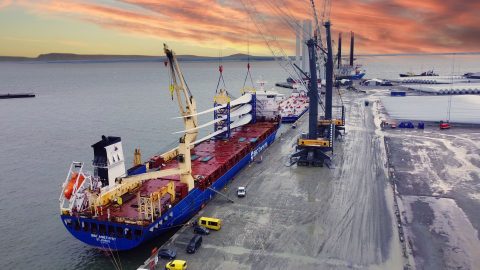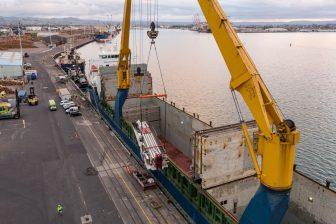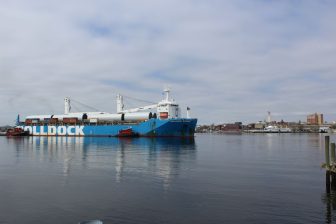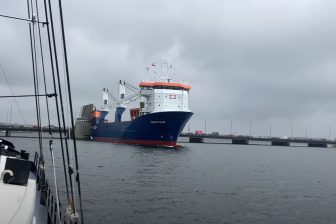
2023 in Review: Opinions
As we leave the year 2023 behind, it is worth reminding everyone of the articles that got the most attention, the interviews of the year and the Editor’s picks. The Project Cargo Journal team wishes everyone a happy and prosperous 2024.
Published on March 16
There is still space for smaller, agile players in the market, UPF Group CEO says
For years, smaller companies have fallen into the same mould of starting up with bright ideas, growth and then consolidation. Such concepts, while logical, do have some downsides, such as stifling the growth of talent, and slowing down the process of implementation of new and bright ideas within the project logistics realm.
It was also one of the reasons for Thomas Vestergaard, who departed Tschudi Logistics after spending 16 years in various positions at the company, to launch UPF Group as CEO and Co-founder. UPF Group is a smaller, agile outfit with significant backing from a number of partners from United Shipping Group.
Published on August 7
Can data crunching eliminate 16-hour wait time for breakbulk ships?
“The best fuel for the environment is the fuel that isn’t burned,” says Nicolas Maes, Head of Product & IT, at Royal Dirkzwager, a company that has been the eyes and ears of the maritime world.
Shipping is a sector that is very susceptible to disruptions. Whether it’s congestion, strikes, rerouting or breakdowns, there are many events that affect the planning of a cargo shipment. Furthermore, the shipping sector is a very fragmented one. A single cargo shipment involves operational and administrative processes divided over many actors.
Those disruptions have a direct impact on reliability. They lead to miscommunication, delays and waiting times. In an ever more competitive market, and with new regulations coming into place to speed up decarbonisation, reliability should be top priority.
Published on November 27
Stay local to go global
To endure, global brands must deliver consistently on the reputations that first inspired demand, but even worldwide businesses know that local tastes vary.
Tempting though container shipping finds it to spend its bumper profits on expansion, the giants of the sector would therefore be wise to consider whether the project cargo sector has any more appetite for global flavours.
Clearly, logistics wisdom far beyond scale economies is needed to build a global shipping brand and, since the early 1980s, container shipping has grown a strong presence in project cargo by using flatracks to provide special and scheduled deliveries. Cosmatos is a buyer of this capacity, taking advantage of its favourable sea freight rates and predictability, and adding the value of its special load handling and last-mile logistics expertise.
Published on December 6
Finally, a green trajectory for shipping
Responsible for about 3 per cent of global carbon emissions, maritime shipping has long been left off the hook for climate action. This is particularly troubling as the industry has shown no sign of reducing emissions. 2022 was a record year for shipping pollution and emissions show no sign of slowing down.
But all of this is set to change with new European rules for the sector. In this blog post, Transport & Environment sets out what the European Union has put in place, what it means for shipping companies and what the missing piece of the puzzle is.
You just read one of our premium articles free of charge
Register now to keep reading premium articles.




